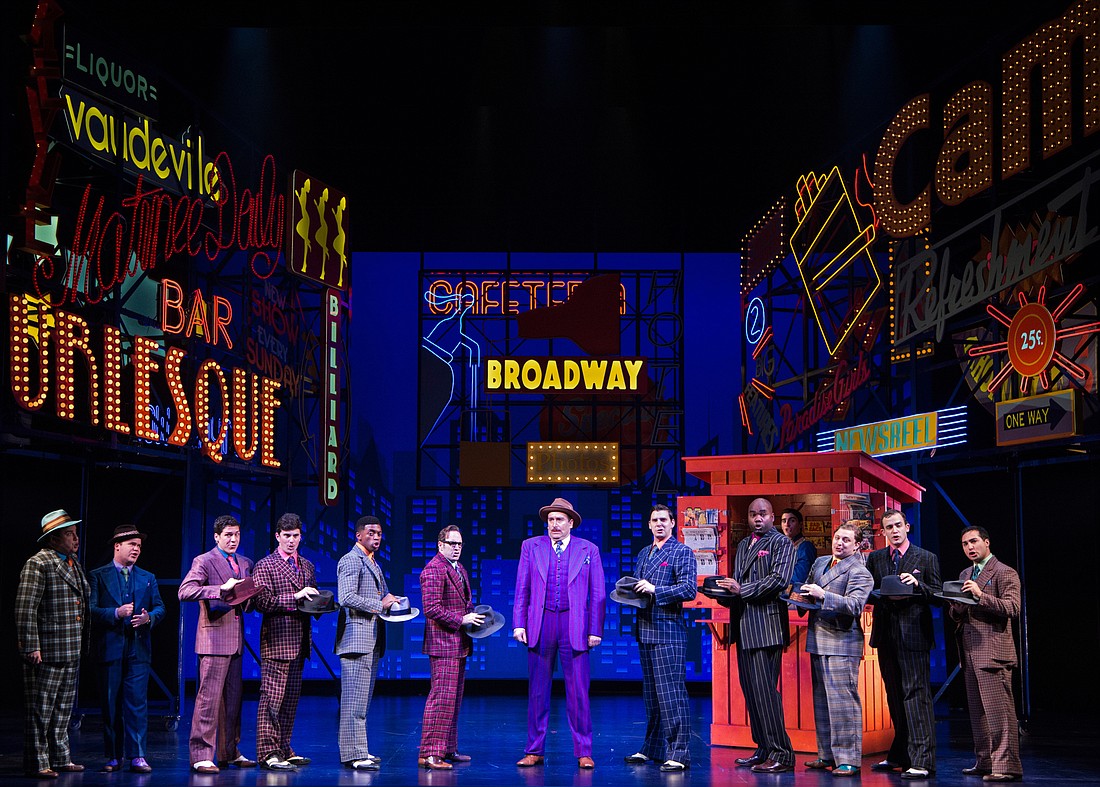- November 24, 2024
-
-
Loading

Loading

Josh Rhodes is on the other side of the stage now. In recent years, he’s made a name for himself as an acclaimed director and choreographer. But there’s a part of him that will always be a performer.
It’s where he got his start — acting in seven Broadway musicals. Now, as director and choreographer of Asolo Repertory Theatre’s production of “Guys and Dolls,” he’s combining all three skills to bring the infectious 1950 Broadway musical to life in Sarasota.
We sat down with Rhodes to talk career trajectory, dirty jokes and why true love means learning to compromise.
“I started as a performer, then I became a choreographer, and now I’m a director. I love working with actors, especially having been one. I value their input and collaboration. In some ways, I’m still that guy in the dressing room with all the other actors. But now, of course, I’m the leader of the group.”
“Sometimes, a director’s job is to be invisible, which can be the hardest thing to explain to people. If you’ve done your job right, it doesn’t look overly choreographed or directed. It looks like those characters just came onstage and started talking to each other.”
“With ‘Guys and Dolls,’ I wanted to honor the tradition of the show. I went back and read original David Runyon stories. I researched the original team and actors. They were vaudevillians — they wrote for burlesque and radio and early American comedy. That was an inspirational jumping-off point. For the most part, my goal was to bring out the comedy. This is a really funny script.”
“I want it to be funny, but at the same time, you have to care about these characters. It’s not a cartoon or a clown show. The humor comes from everyone fighting for what they want — and it’s all different.”
“In act 2, there’s a number called “Sue Me,” sung by Nathan and Adelaide that really illustrates that. They’ve been engaged for 14 years. She wants him to get married, but he’s stuck in situation because of a lost bet. And you laugh, but it’s heartbreaking to see this couple who loves one another, but they’ve let each other down. You can laugh, but they twist the knife right at the end. That is really great writing.”
“This was written in 1950, but there’s still truth to it. Everyone who wants to have a successful relationship has to compromise. And that’s something these characters realize.”
“To prepare, we’ve been doing exercises in the morning, just being silly, spending an hour studying burlesque, vaudeville and Jewish humor — Henny Youngman one-liners. Some of the jokes are absolutely filthy; I can’t repeat them. I would have them run onstage, deliver a one-liner and run off. We even took Shakespeare quotes and put them in the Damon Runyon style — now famously called Runyonesque. It’s sort of gangster talk, but they’re trying to be highfalutin. Hearing people quoting Julius Caesar as a Damon Runyon gangster — it’s hilarious.”
“The language is important to this musical. So is the vocal energy. It’s all about rhythm and playing to the end of the joke. Contemporary dialogue works played down and subtle, but this material requires you to stay what we call ‘on-voice.’ Delivery is half of it. If you honor the rhythm, you can get an audience rolling with laughter.”
“The show is going to have an energy to it. It’s going to be bursting at the seams. The audience will be taken away to this wonderful fable we’ve created. We’re going to grab them right from the top, and they’re not going to be able to let go.”